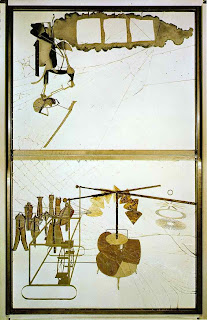
Boots of Spanish Leather by Bob Dylan from The Times They Are A-Changin'
Oh, I'm sailin' away my own true love,
I'm sailin' away in the morning.
Is there something I can send you from across the sea,
From the place that I'll be landing?
No, there's nothin' you can send me, my own true love,
There's nothin' I wish to be ownin'.
Just carry yourself back to me unspoiled,
From across that lonesome ocean.
Oh, but I just thought you might want something fine
Made of silver or of golden,
Either from the mountains of Madrid
Or from the coast of Barcelona.
Oh, but if I had the stars from the darkest night
And the diamonds from the deepest ocean,
I'd forsake them all for your sweet kiss,
For that's all I'm wishin' to be ownin'.
That I might be gone a long time
And it's only that I'm askin',
Is there something I can send you to remember me by,
To make your time more easy passin'.
Oh, how can, how can you ask me again,
It only brings me sorrow.
The same thing I want from you today,
I would want again tomorrow.
I got a letter on a lonesome day,
It was from her ship a-sailin',
Saying I don't know when I'll be comin' back again,
It depends on how I'm a-feelin'.
Well, if you, my love, must think that-a-way,
I'm sure your mind is roamin'.
I'm sure your heart is not with me,
But with the country to where you're goin'.
So take heed, take heed of the western wind,
Take heed of the stormy weather.
And yes, there's something you can send back to me,
Spanish boots of Spanish leather.










